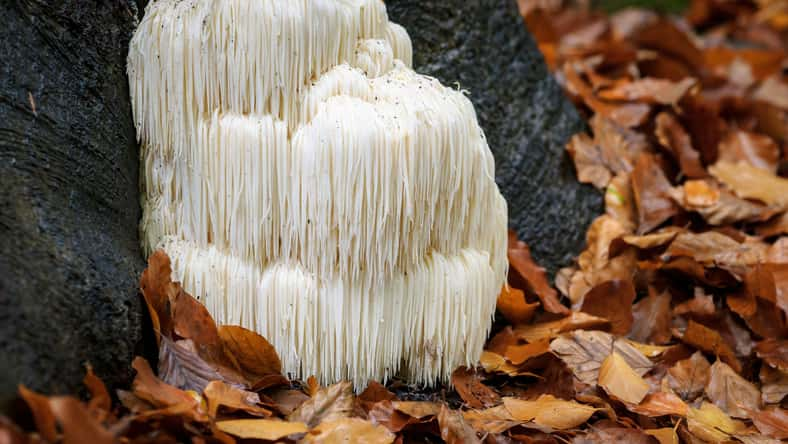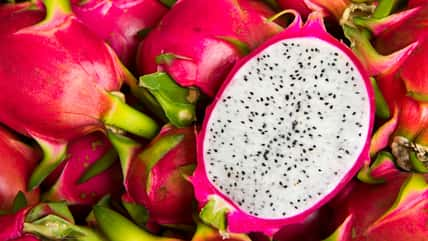This Fungi, Known As The “Lion’s Mane Mushroom,” Grows In Forests Across Asia, Europe, And North America And Serves A Variety Of Medicinal Purposes

On the trunks of beech and oak trees, there grows something called the lion’s mane mushroom. These mushrooms are pom-pom-shaped, fluffy, and white, and look similar to a lion’s mane—hence the name.
They grow in forests across North America, Europe, and Asia. For centuries, the lion’s mane mushroom has been used as a food item and an herb for medicinal purposes throughout Asia and Europe.
According to a study from 2017 in the Journal of Restorative Medicine, the use of lion’s mane mushroom as a medicinal supplement dates back to 450 BCE. During this time, Hippocrates, a Greek physician, discovered the anti-inflammatory properties of fungi.
Lion’s mane has many potential health benefits and offers several vitamins and nutrients. For one, the fungi can help enhance brain function. It contains compounds that can protect against disorders like Alzheimer’s disease.
Some research has shown that lion’s mane may be effective at improving memory and symptoms of mild cognitive impairment.
In one study, adults with Alzheimer’s took a one-gram lion’s mane mushroom supplement every day for almost a year. The results found that the participants who took the supplement scored higher on cognitive tests than those who received a placebo.
Lion’s mane mushroom may also be an alternative treatment that works to relieve depression symptoms. The mushroom can minimize inflammation linked to depression, ensure healthy brain activity, and reduce the loss of nerve growth.
People living with depression are thought to have lower nerve growth, which is brought about by stressful situations.
Nerve growth is an important aspect of mood regulation, and a number of studies have proved that the mushroom has the ability to increase nerve growth. One study determined that taking a supplement containing the mushroom for eight weeks decreased depression and anxiety.

fotografiecor – stock.adobe.com – illustrative purposes only
It is believed that the mushroom has additional benefits, such as regulating blood sugar, reducing high blood pressure, combating fatigue, providing energy boosts, slowing aging, and protecting liver, heart, and kidney health. Lion’s mane is a good source of potassium, a mineral that assists with kidney and heart function.
Lion’s mane mushrooms can be eaten cooked, raw, or dried. When using them as a culinary ingredient, add them to soups, sauces, or stir-fries.
Some grocery stores even sell lion’s mane mushroom burgers, making them an excellent plant-based meat substitute. They are also available as a supplement in the form of capsules or powders, which can be stirred into tea or coffee.
In research, few side effects have been reported from consuming the mushroom. However, nausea, skin rashes, and gastrointestinal discomfort may occur.
There is not enough research about the safety of taking lion’s mane during pregnancy and breastfeeding, so it’s best to avoid it during those times. Before trying lion’s mane, consult a healthcare professional to see if it’s right for you.
Sign up for Chip Chick’s newsletter and get stories like this delivered to your inbox.
More About:News





